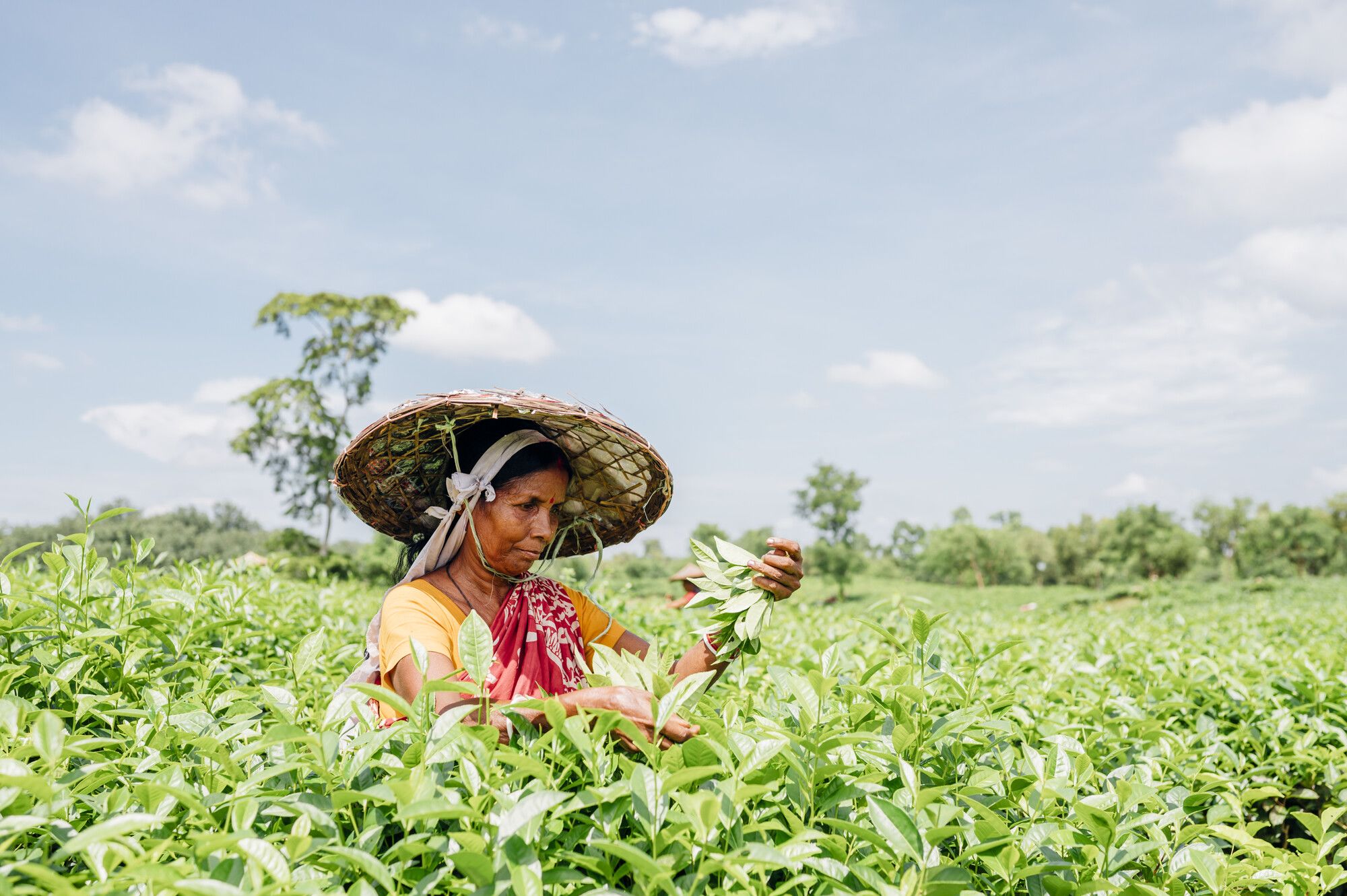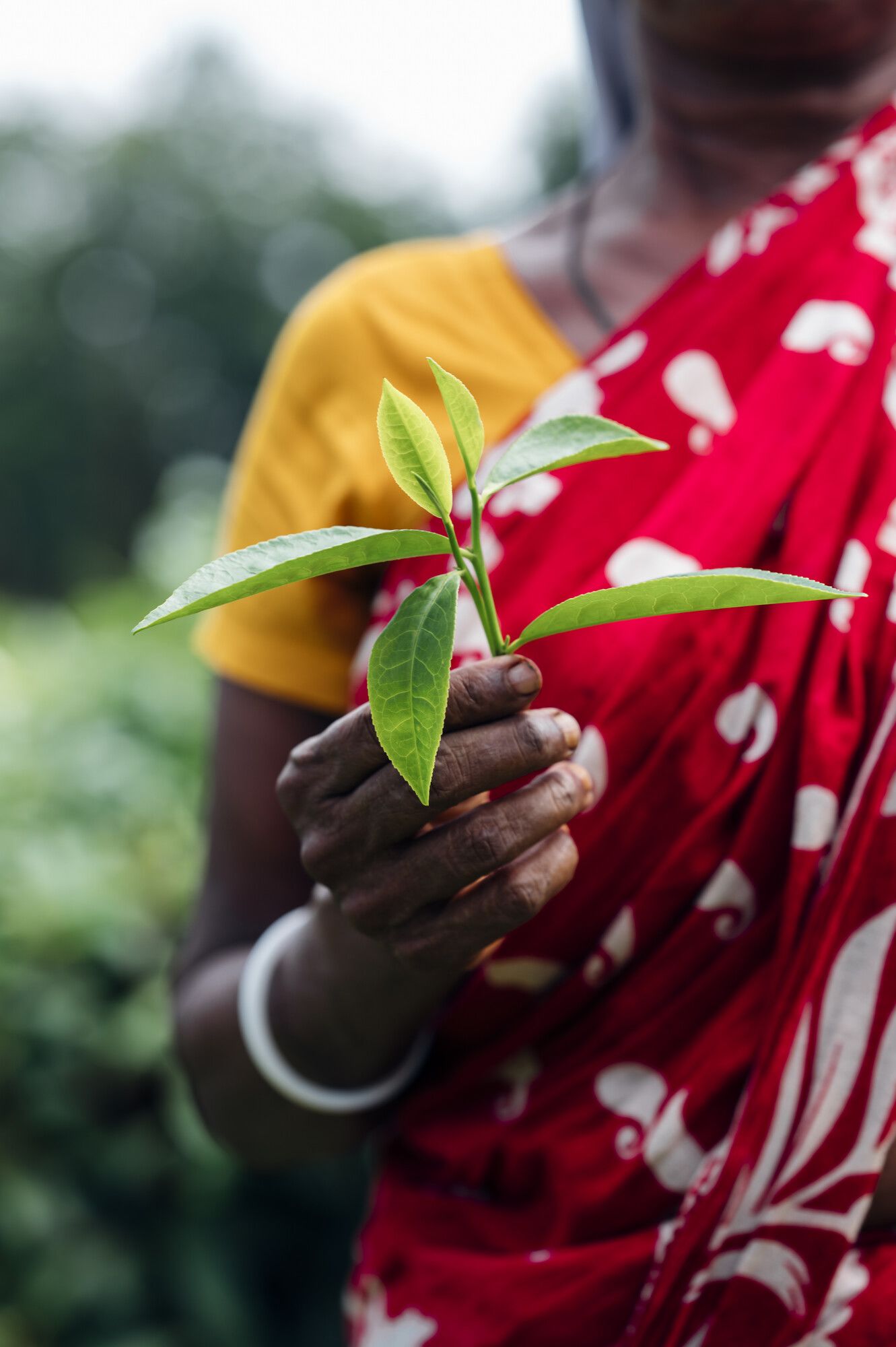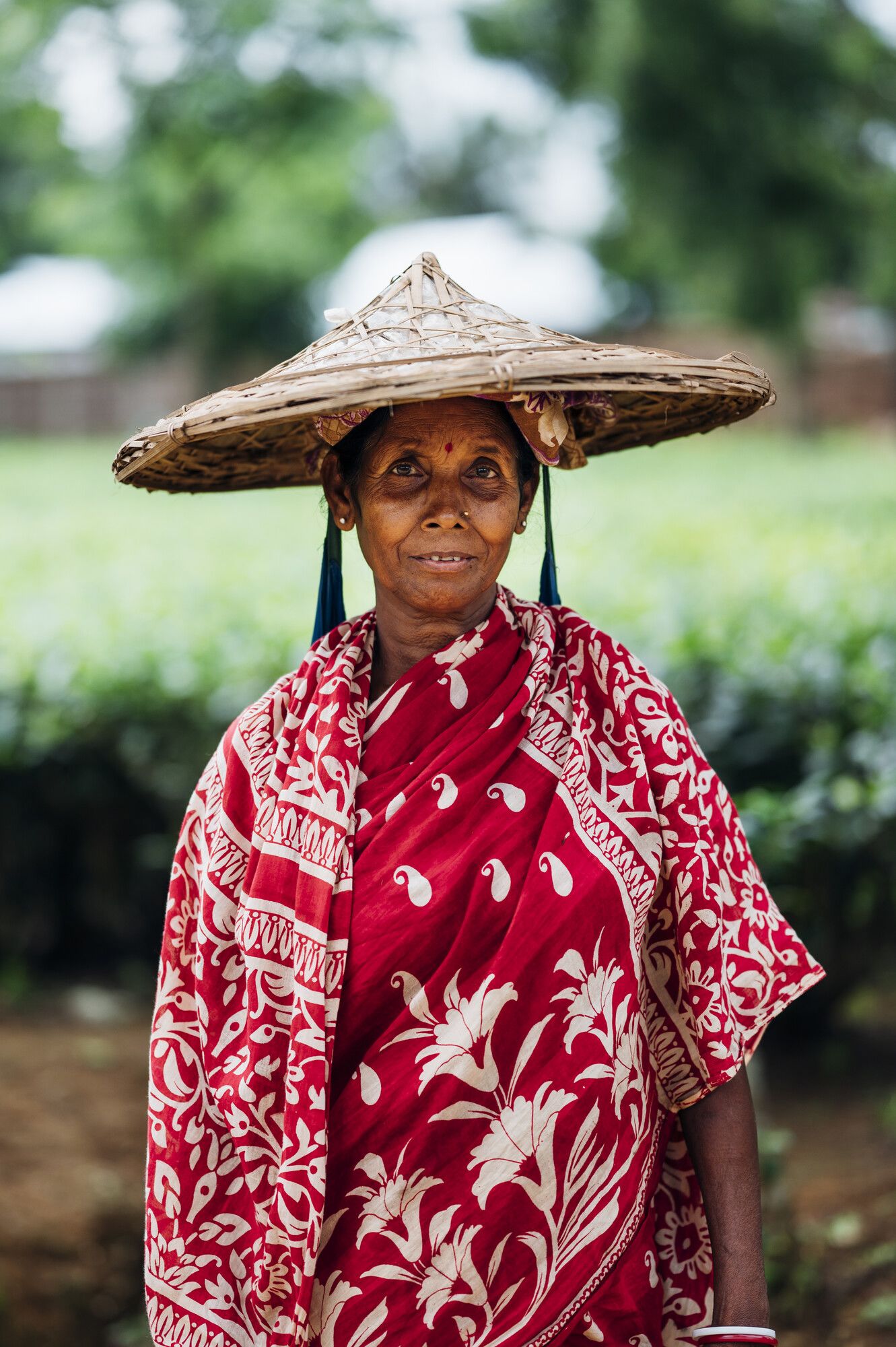Meet Dalamar
Across the world, leprosy
disproportionately affects women.
Discover the difference you can make when you stand with women affected by leprosy.
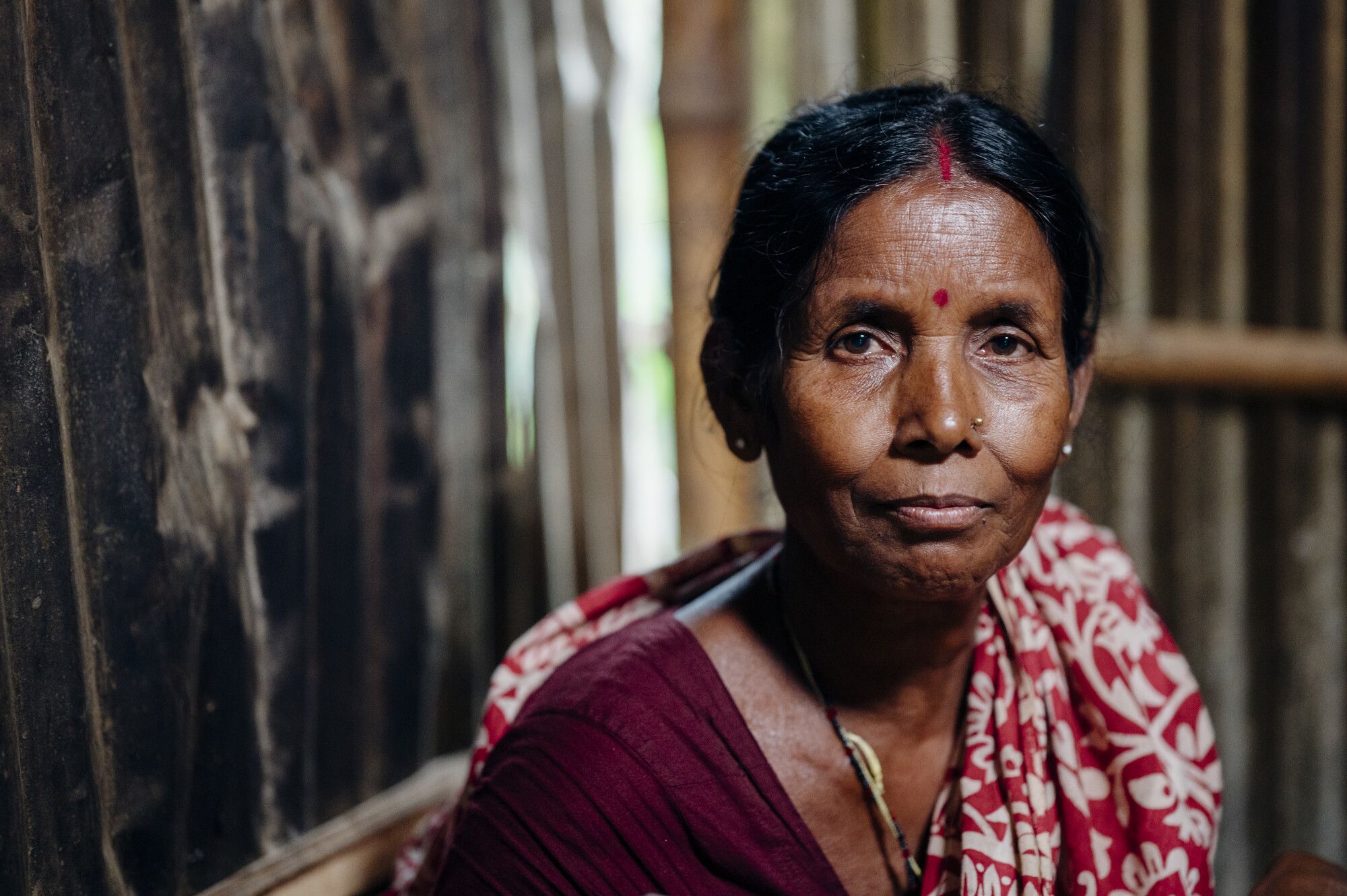
Dalamar's story
In the tea gardens of Sylhet, northern Bangladesh, our teams are finding more cases of leprosy than anywhere else they work. Here, leprosy rates are 20 to 30 times the global average.
On a recent visit there, we met 50-year-old Dalamar.
She's worked as a tea picker for more than 20 years and is well-known for her skill. Despite being required to pick 23kg of tea leaves a day, Dalamar often picks as much as 80kg. The more she picks, the better she can provide for her family.
"I pick more than others, like in the morning, sometimes it's 40kg, and in the afternoon it's 35kg," she told us.
"If I pick more leaves, I will get more money."
But one day, Dalamar feared her life as a tea picker was about to come crashing down.
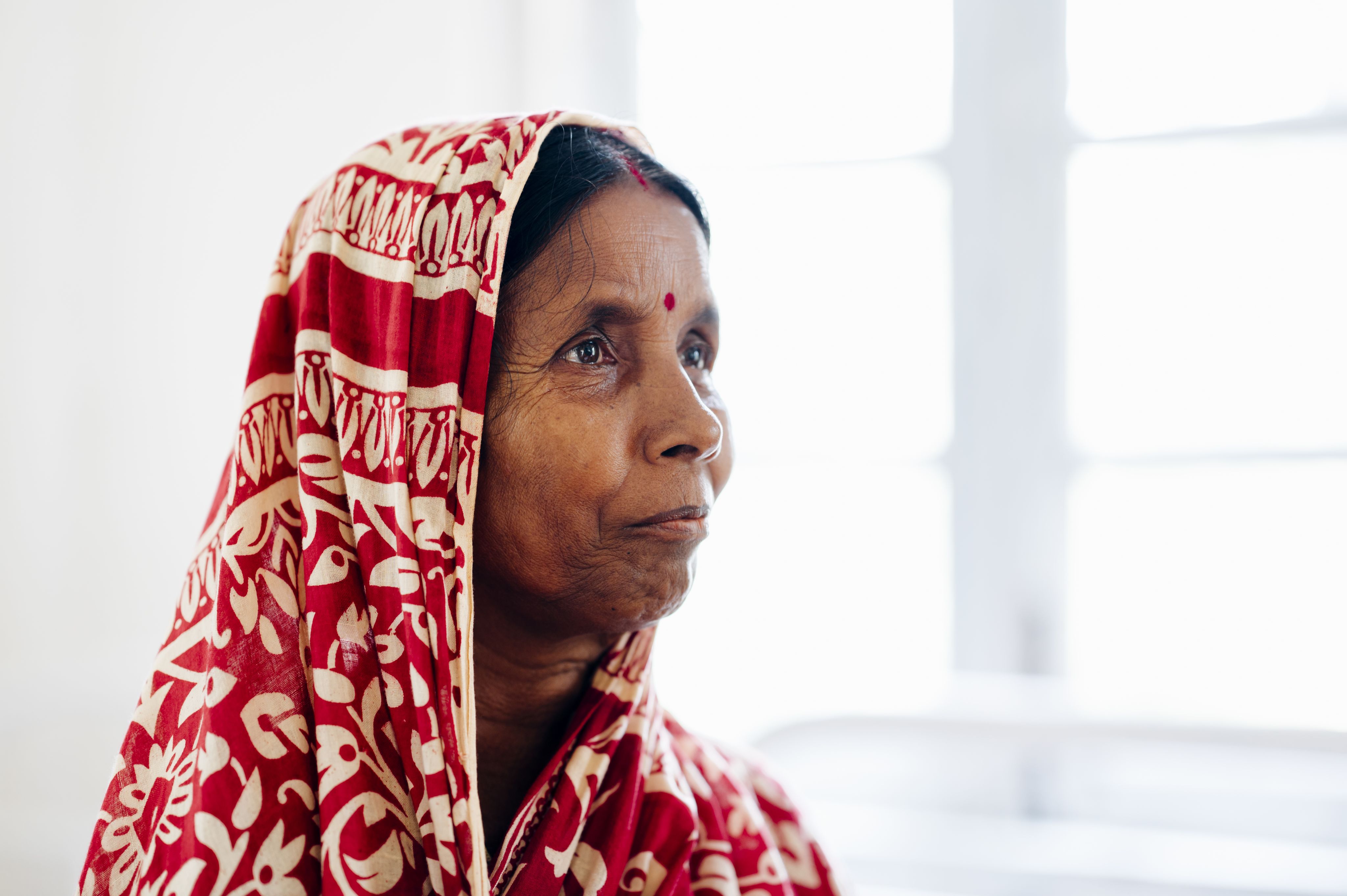
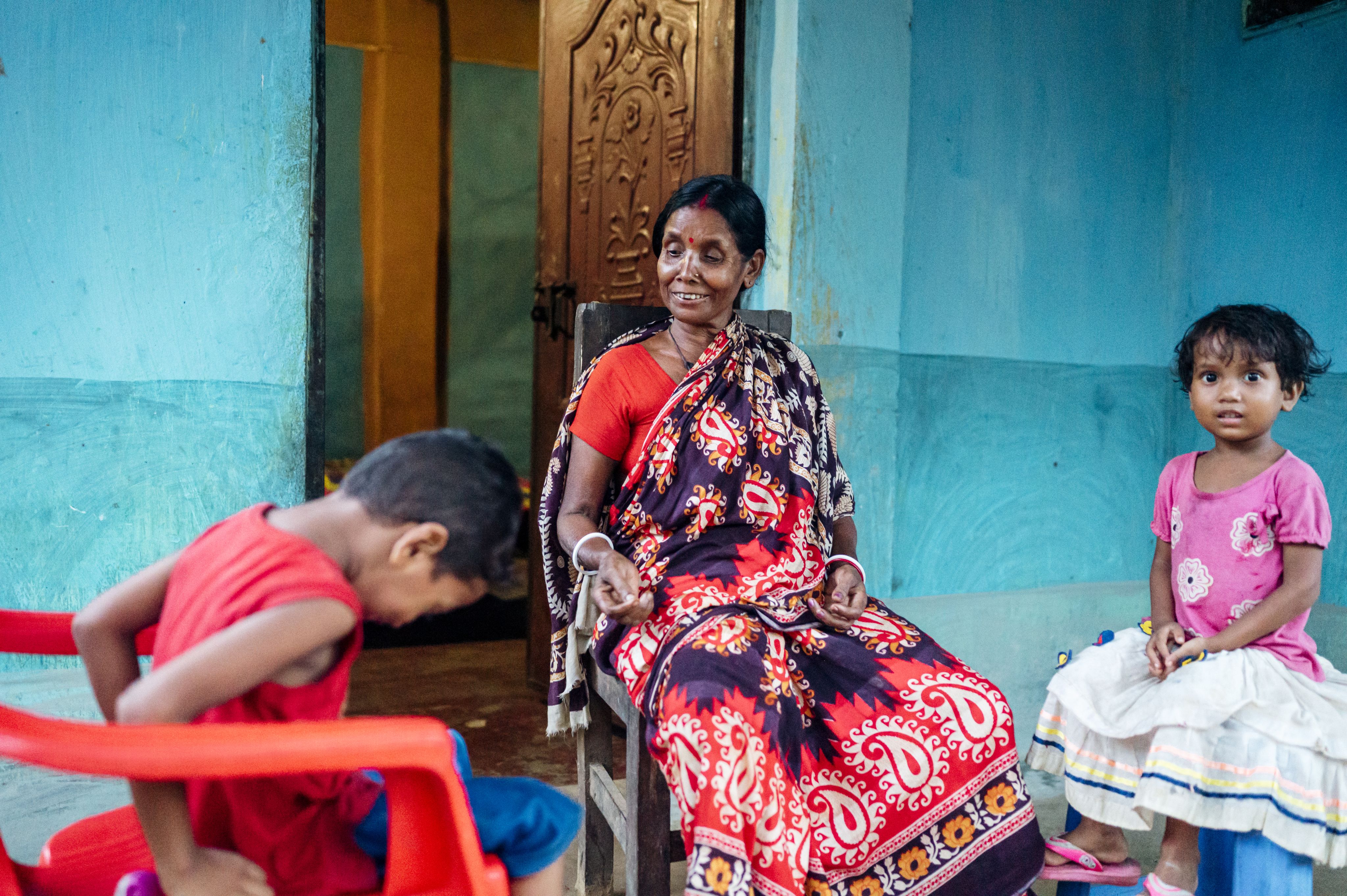
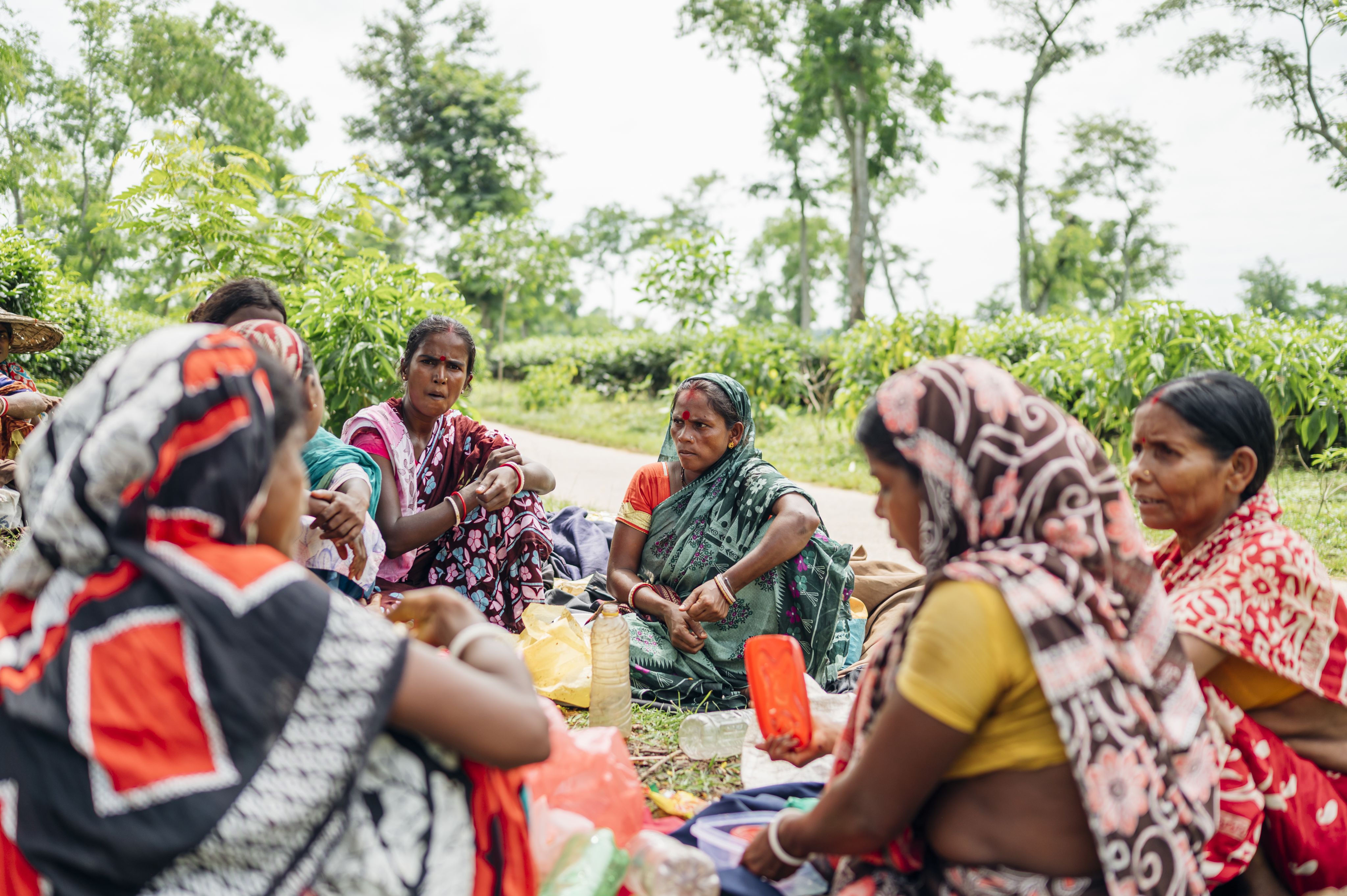
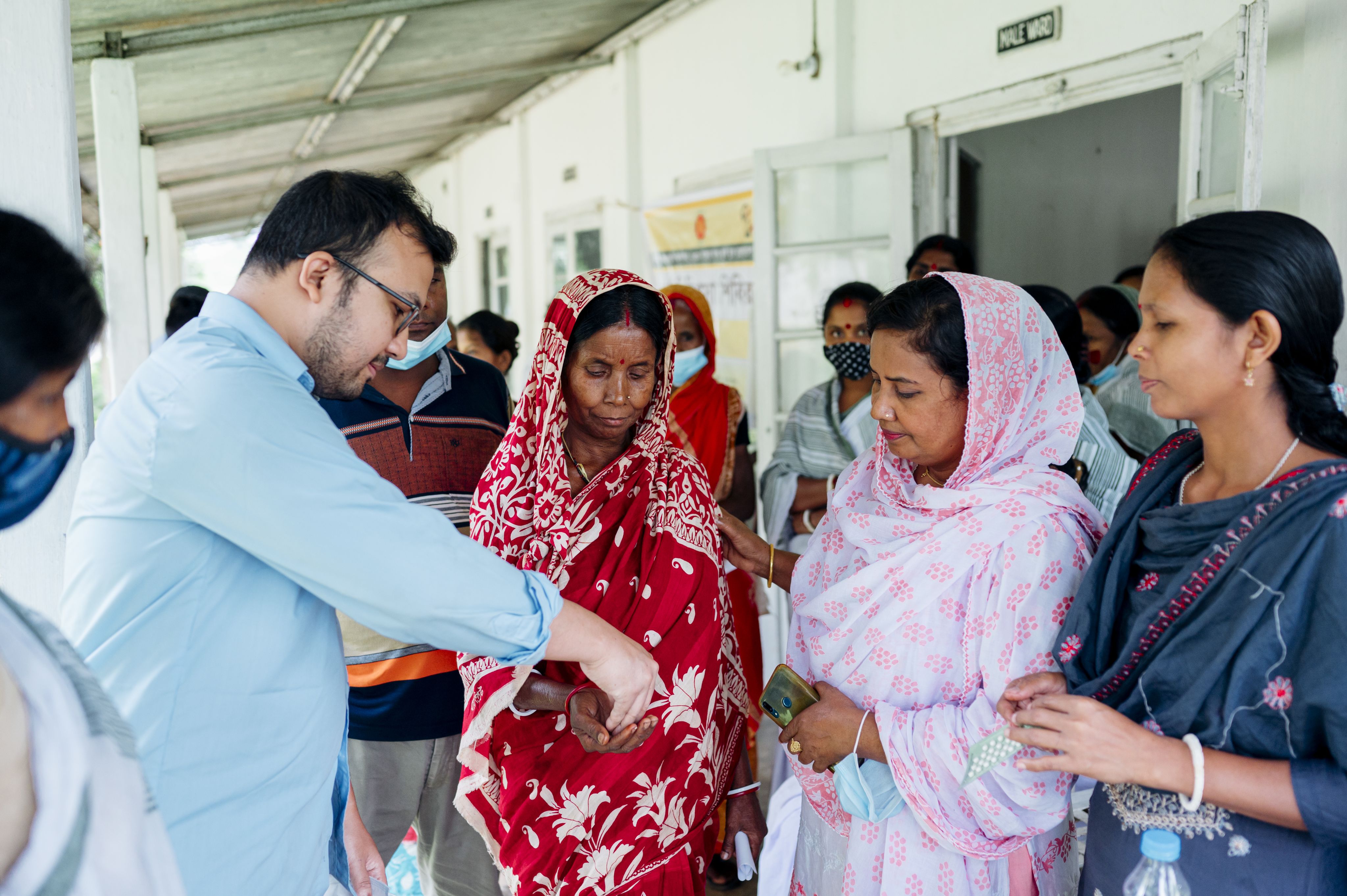
Dalamar waited in a queue at a pop-up clinic, trying to steady her breathing.
She glanced down at her stomach as the sick feeling of panic started to overwhelm her. But it was not the panic that troubled her most. It was the patches on her skin.
As she waited, Dalamar thought about her husband and sons. She had to be strong for them. Her husband had recently broken his hip, and her two sons only brought home small wages from working in a shop and on a construction site. She brought in more income than all of them combined.
She thought about her grandchildren. Like all grandmothers, she wants them to have happy lives, to get an education, and have good jobs.
She thought about her friends. A group of 12 women all picking tea together, there was a strong bond between them. They all worked hard to provide for their families. Only yesterday they danced and sang together as they got caught in the rain while out in the tea gardens.
What if these patches on her skin were something serious? What would her family do without her? Was she going to lose her friends? If she couldn't work, where would her family live?
As these questions raced through her mind, the queue edged slowly forward.
When Dalamar reached the front of the queue, her heart was pounding. The doctor checked the patches on her skin. Then he told Dalamar that she had leprosy.
Her heart dropped. Her thoughts stopped. She felt fearful.
Out of the daze, she heard his voice breaking through: "It will be ok. We caught it early and there is a cure.”
Because of your support, Dalamar will continue to be her family's rock.
Our team in Bangladesh can run pop-up clinics in the tea gardens, making sure people get the leprosy diagnosis treatment they need.
Dalamar won’t lose feeling in her hands and feet due to nerve damage. She won’t go blind or develop clawed hands. Any of these could have happened had her leprosy gone unnoticed.
Now, she won't lose her job. Her family won't lose their home.
She will still be able to see and hold her grandchildren, provide for her family, and dance with her friends.
Together, we can ensure that all women affected by leprosy have this security and know these joys.
With your support, we can train healthcare workers to diagnose and cure leprosy, prevent disability, and protect livelihoods.
Will you stand with us and women affected by leprosy like Dalamar?
Dalamar's story could have been very different.
And for many women, the story is different.
Across the world, leprosy disproportionately affects women. Here are just some of the reasons why:
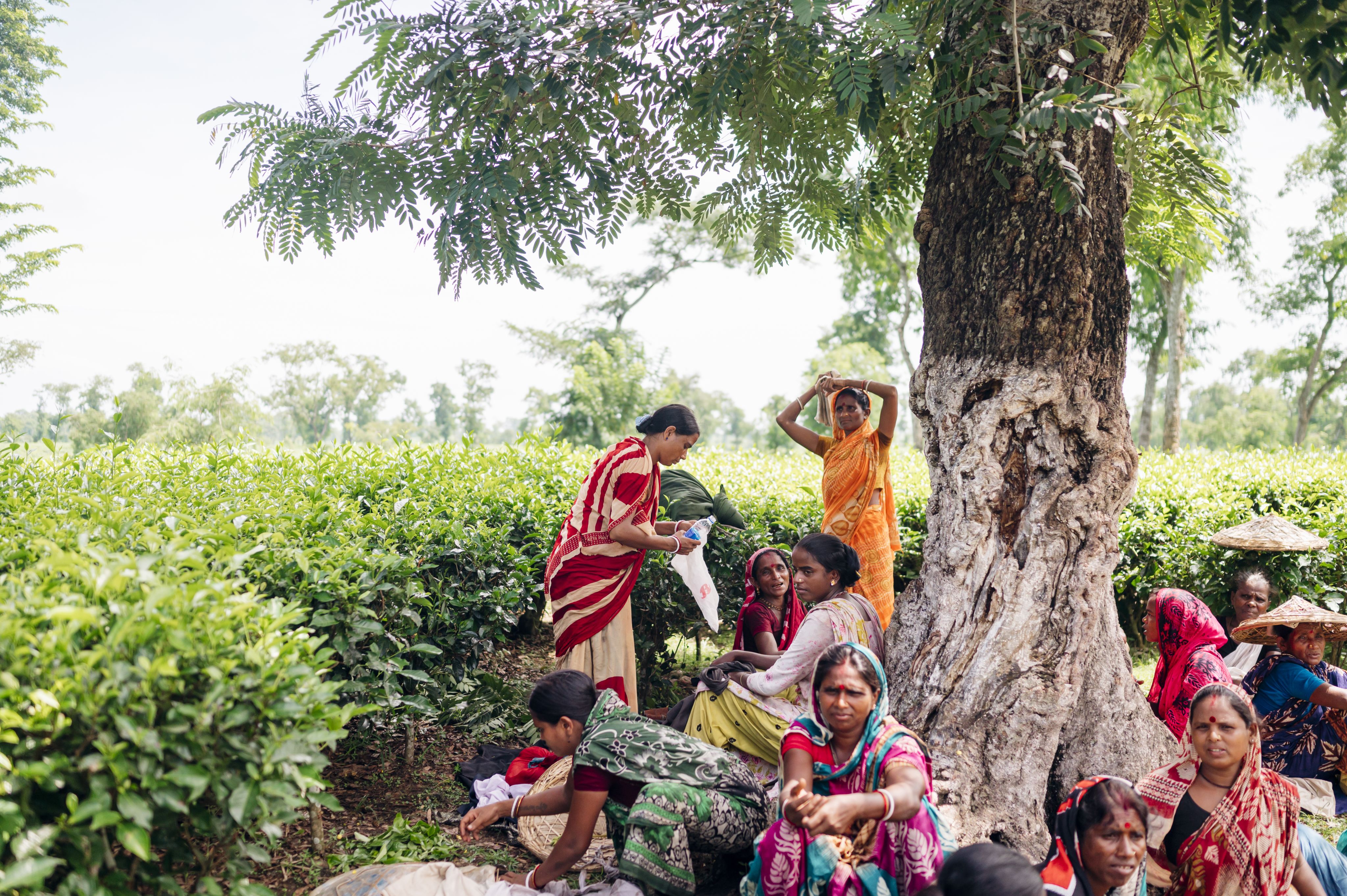
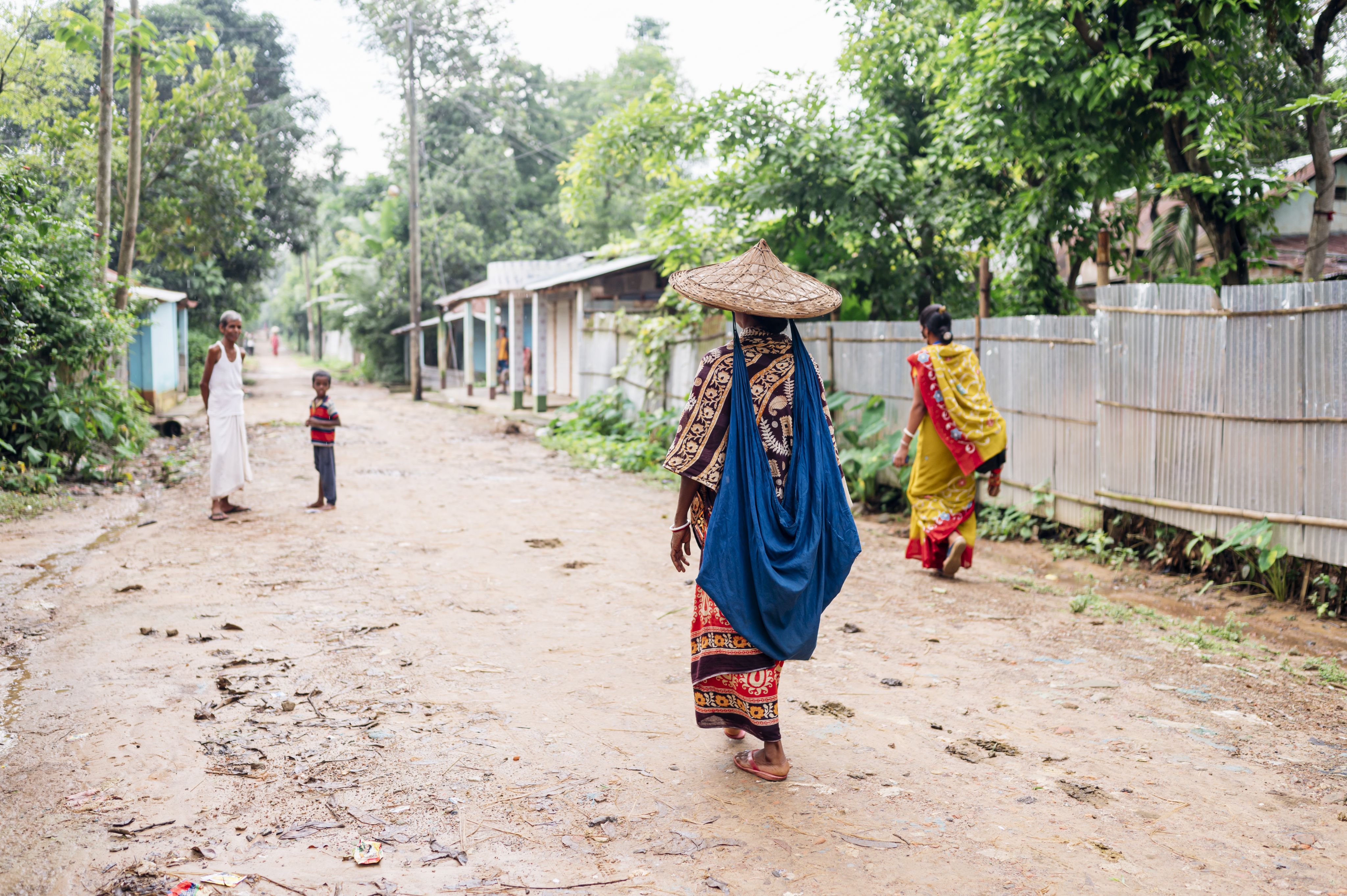
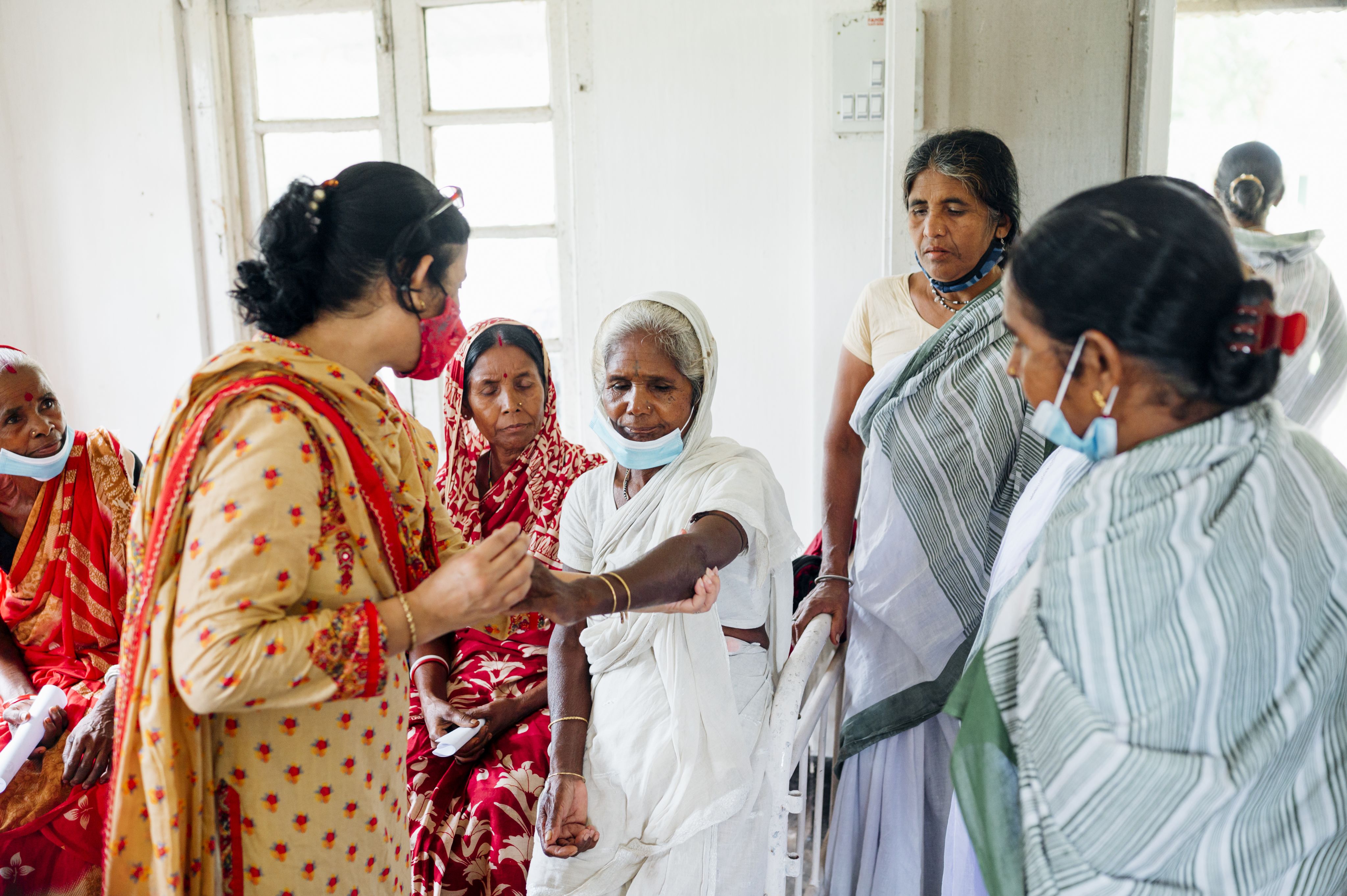
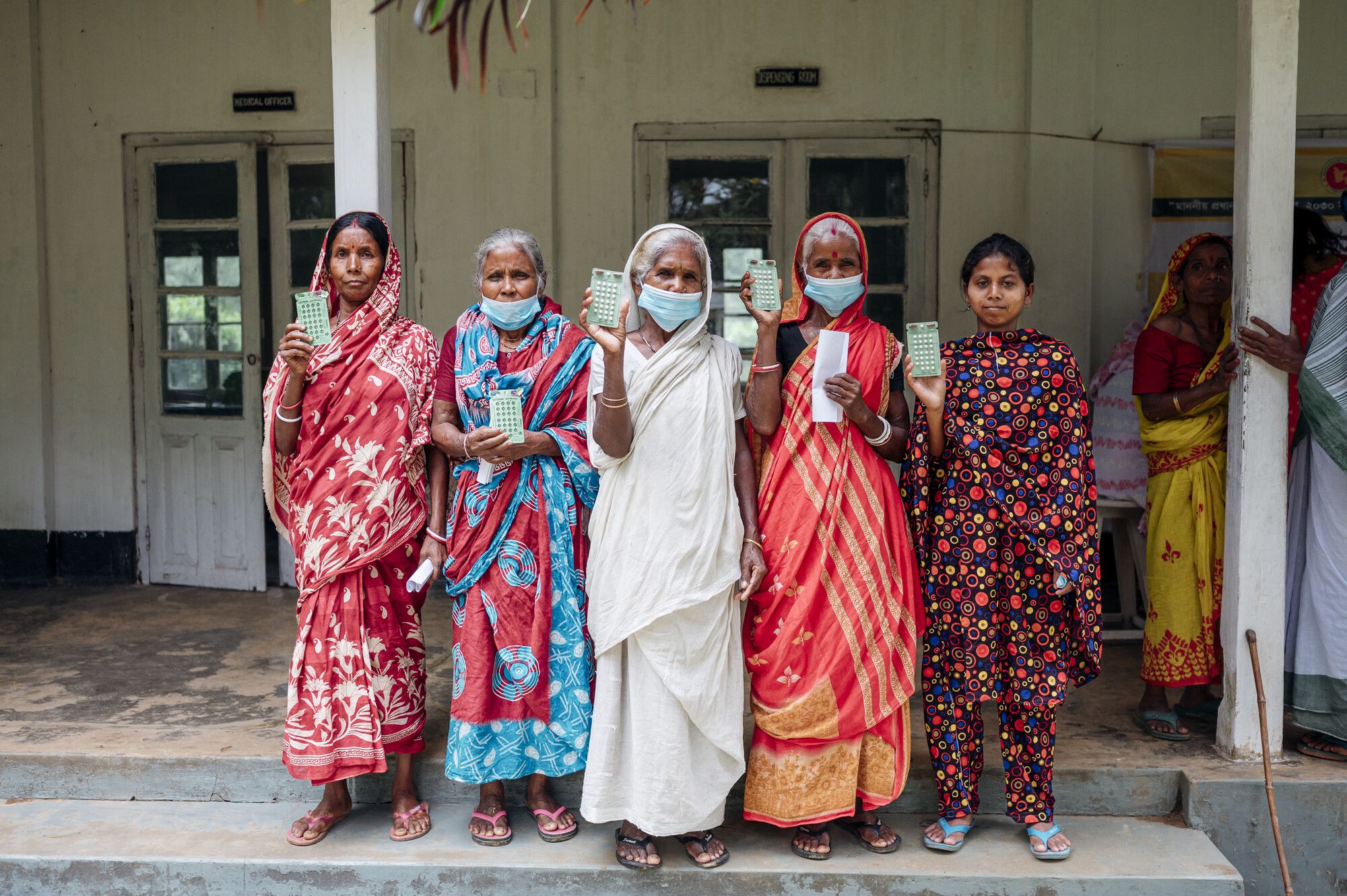
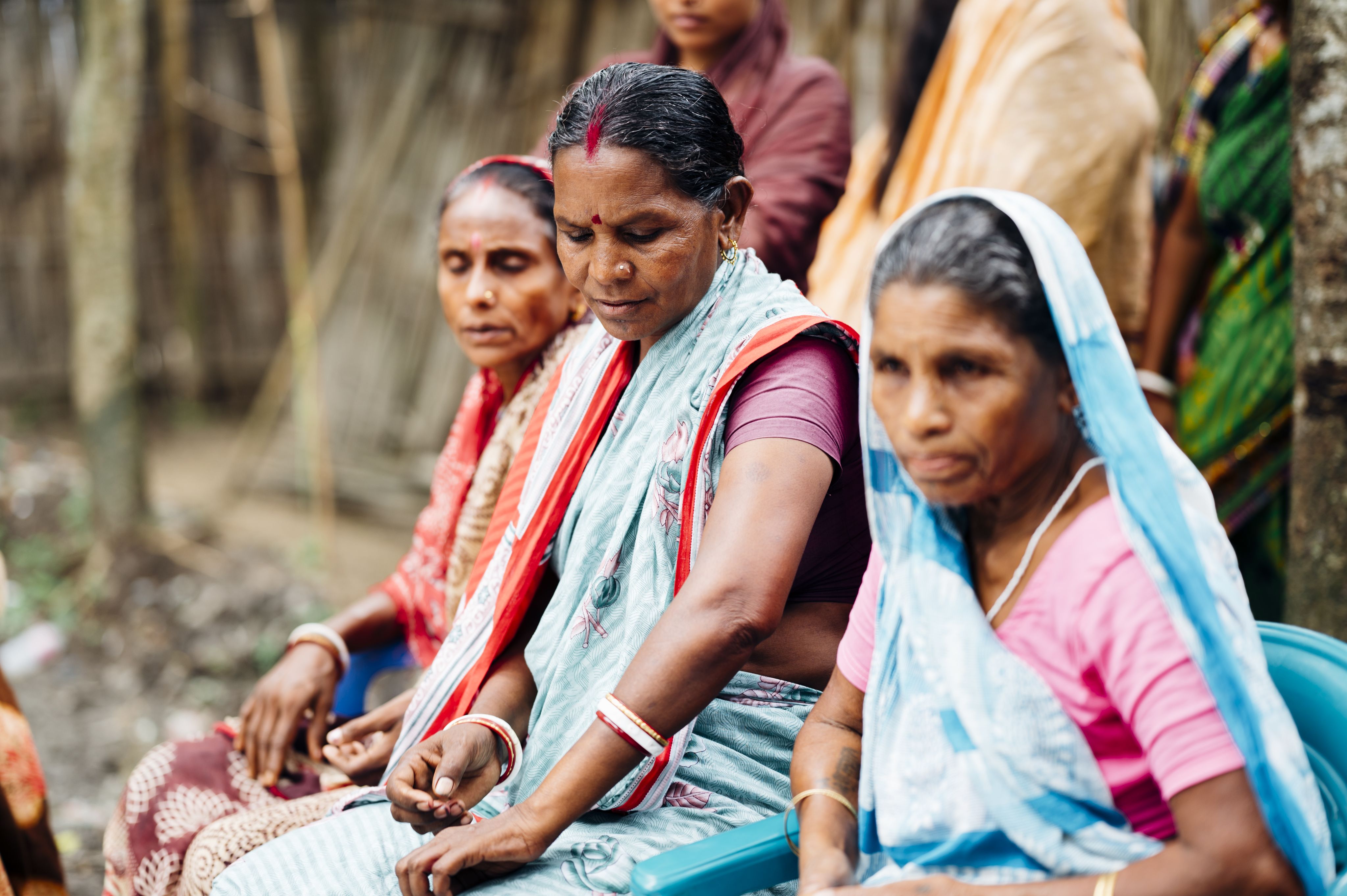
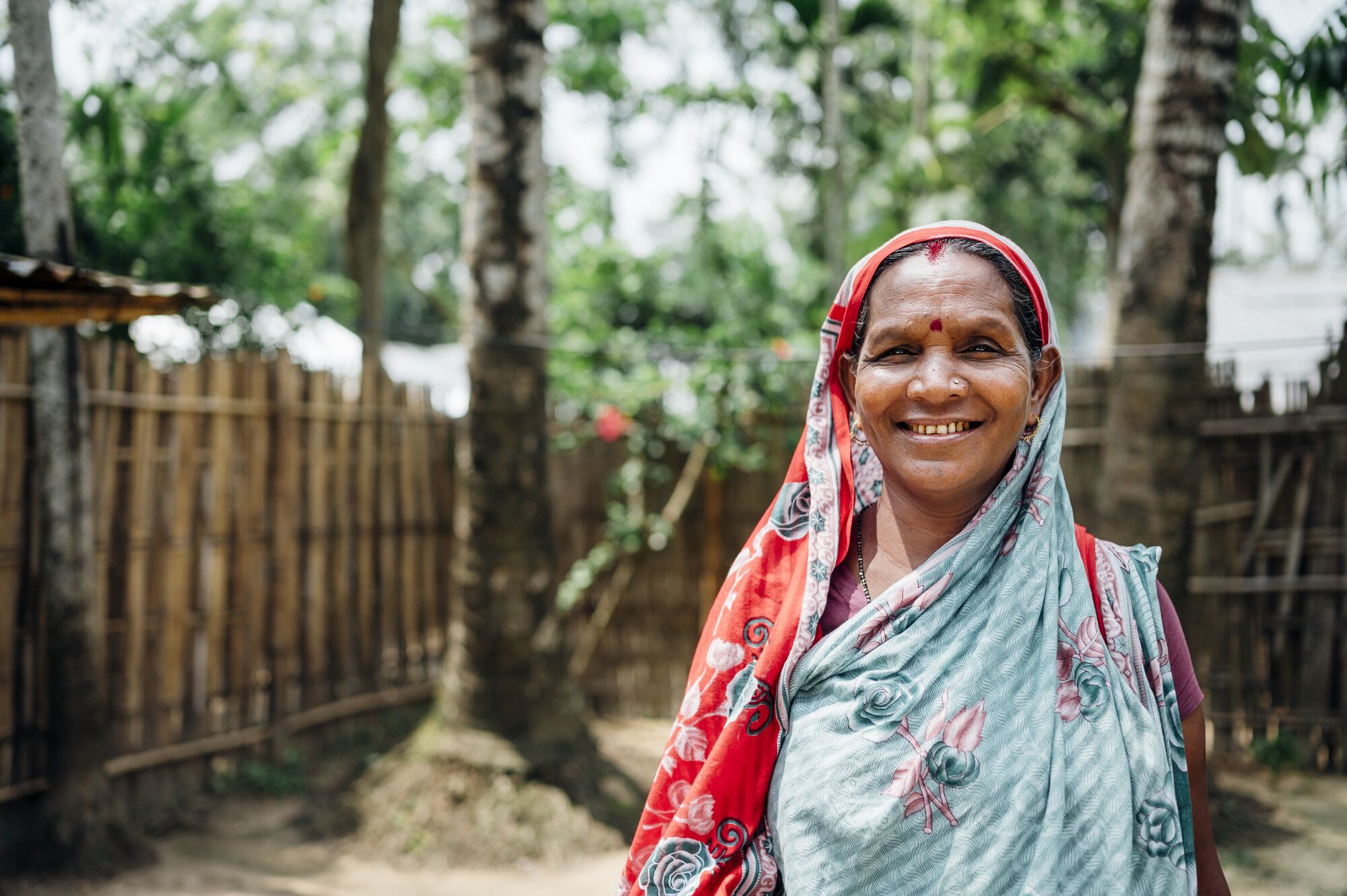

Leprosy stigma can disproportionately affect women, leaving them more reluctant to seek treatment.
For example, women are more likely than men to be deserted by their spouses when diagnosed with leprosy. Can you imagine facing a choice between permanent disability, or exclusion from your family and community?
Women can also face lower access to healthcare in many places:
- Where specialist leprosy services are far away from communities, and they are disabled or unable to leave young children in order to travel there.
- Where the journeys to clinics and hospitals are expensive and they don't have enough money to pay for transport.
- Where they have smaller social networks they can draw on to help them reach treatment.
For elderly women, or women in marginalised communities, these barriers can be even greater.
Because women face these barriers, they are more likely to be diagnosed late. They are more likely to become disabled. They are more likely to face further stigma and insecurity.
So what are we doing about it?
Alongside our partners and you, we're:
Supporting women to join self-help groups
These groups provide opportunities for members to build up savings, access livestock to boost their livelihoods, and get loans to start small businesses. These groups help women to lift themselves out of poverty.
Challenging discrimination and inequity
Across the world, women are fighting for access to social welfare, for basic necessities like water, and for the opportunity to be heard.
We're standing with women who are advocating for their rights. Women like Aloka (pictured on the right), who recently represented the communities living and working in the tea gardens at a meeting with the Prime Minister of Bangladesh.
Running pop-up clinics and training local health workers to spot the signs of leprosy
By bringing leprosy services into communities, we're reducing the barriers to accessing health care. By ensuring that women get diagnosed early, we can prevent disability.
Then, women like Dalamar can continue to provide for their families. They can continue to spend time with their friends and grandchildren. They can fully flourish.
With your support, every woman can be diagnosed early like Dalamar was.
From praying with us, to bringing your community together to transform lives with a tea party, there are so many ways you can make a difference for women affected by leprosy.
We can see a future where no woman faces poverty, disability, or discrimination because of a treatable disease.
Can you?
Photos © Ruth Towell
